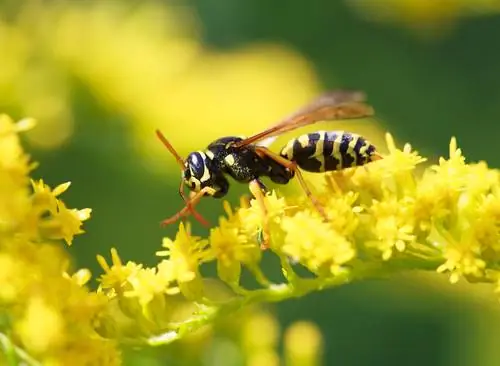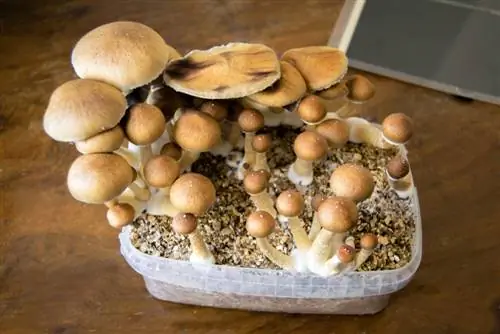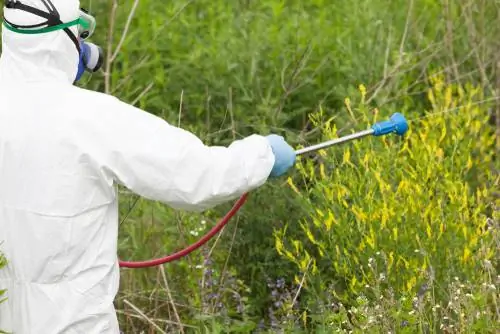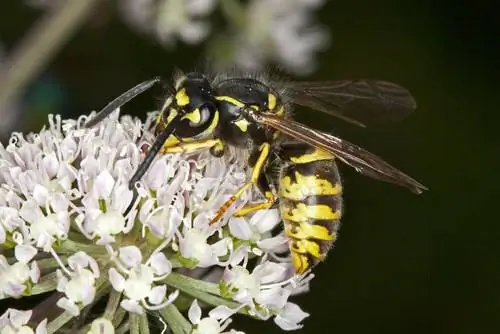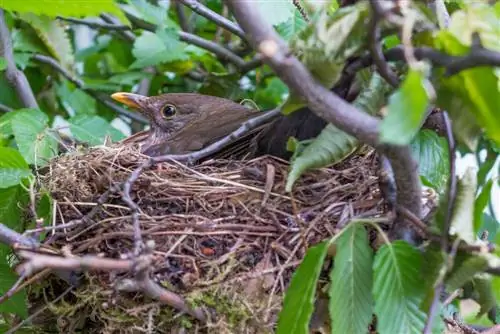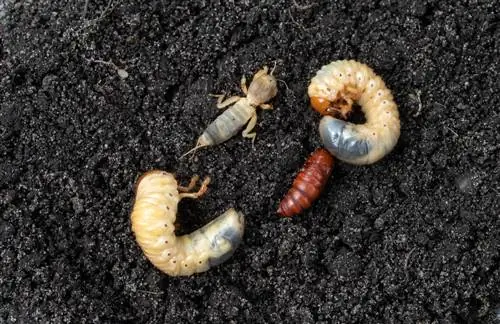- Author admin leonars@hobbygardeners.com.
- Public 2023-12-16 16:46.
- Last modified 2025-01-23 11:22.
Wasps are not very popular with some people - but knowledgeable nature lovers know: the insects are an important part of the ecological system and very useful in the garden. That's why as a hobby gardener you should create favorable conditions not only for bees, but also for wasps.
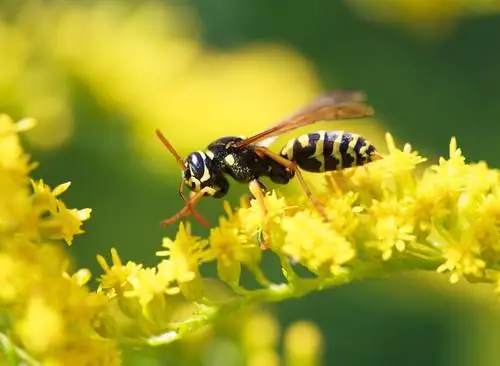
How can I breed and promote wasps in the garden?
To attract and encourage wasps in the garden, you should offer suitable nesting aids such as tree discs or hollow plant stems, cultivate sphecophilous plants such as ivy or thyme and generally garden close to nature.
What wasps do in the garden
Bees are currently enjoying privileged attention and are therefore doing better than ever for many people. Bee protection measures are advertised in political elections, bee pasture flower seed mixtures are available in every supermarket and the hobby beekeepers' guild is larger than ever. Wasps, on the other hand, still have a reputation for being annoying and dangerous. They do a lot of valuable work for the biological balance, which can only benefit a private garden. For example:
- Flower pollination
- Pest extermination
- Secondary enhancement of biodiversity (birds)
So if you want to enjoy a colorfully blooming garden, rely on natural pest control and attract many other beneficial insects, such as wasp-eating birds such as the red-backed shrike or the honey buzzard, you would do well to welcome wasps.
How to attract and care for wasps
The solitary wasps in particular can provide a hobby gardener with valuable services and, thanks to their solitary nature, also pose less potential for disruption and danger. In order to attract the animals, also known as mud wasps because of their brood cell structure, into the garden, the following measures are recommended:
- Set up suitable nesting aids
- Cultivating sphecophiles (wasp-adapted) plants
- General natural gardening
You can easily build suitable nesting aids for solitary wasps yourself. Tree discs made of hardwood with cleanly drilled holes that are not too large are most suitable. This provides the animals with a protectively narrow channel for the breeding cells that does not injure their sensitive wings. Wasps also like to eat hollow plant stems (especially blackberry stems containing pith) or holes in fired clay. What is not suitable at all are perforated bricks. The holes in it are far too big for wasps and wild bees.
It is also wasp-friendly to have so-called sphecophilous plants in the garden. With their flower shape, these have specialized specifically for wasps as pollinators. These primarily include ivy, sand thyme and brown and ragwort. The wasps can more easily access the pollen from their often funnel-shaped flowers using their mouthparts.
In general, it is of course beneficial if you make your garden as natural and rich in species as possible. This also offers other beneficial insects and plants a good habitat and makes the micro-ecosystem more stable.

